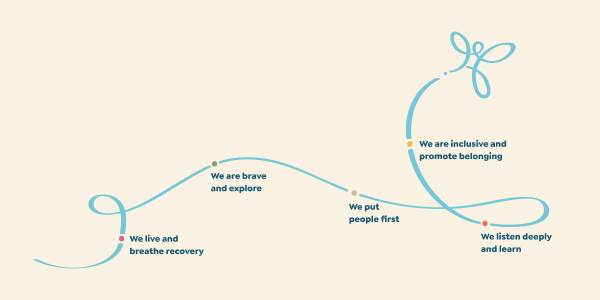Collective Courage
At Richmind WA, we listen deeply, see you as the individual you are, and offer the support you need to find the courage you have inside. We help you to shape your own life and empower you on your journey to recovery, independence, and to build a rich future.
We do this through the expertise, courage, and passion of our people who have an unwavering commitment to mental health recovery. Drawing on a rich experience of over 50 years, we work closely with influential organisations and the local community to shape the mental health landscape in Western Australia.
The journey to recovery takes courage. And however long your journey to recovery takes, we’ll be there.
We know that recovery is deep work that takes time, patience, and courage. We understand that everyone has their own unique experiences and personal challenges, as well as the right to be seen and valued for who they truly are.
That’s why we’re here to partner with you in your recovery and walk alongside you on your journey to wellness. We know that what could seem small for one person could be life-changing for another, so we listen deeply to you, and learn.
It takes courage to take the first step and to keep on moving. Let’s start the journey together.

